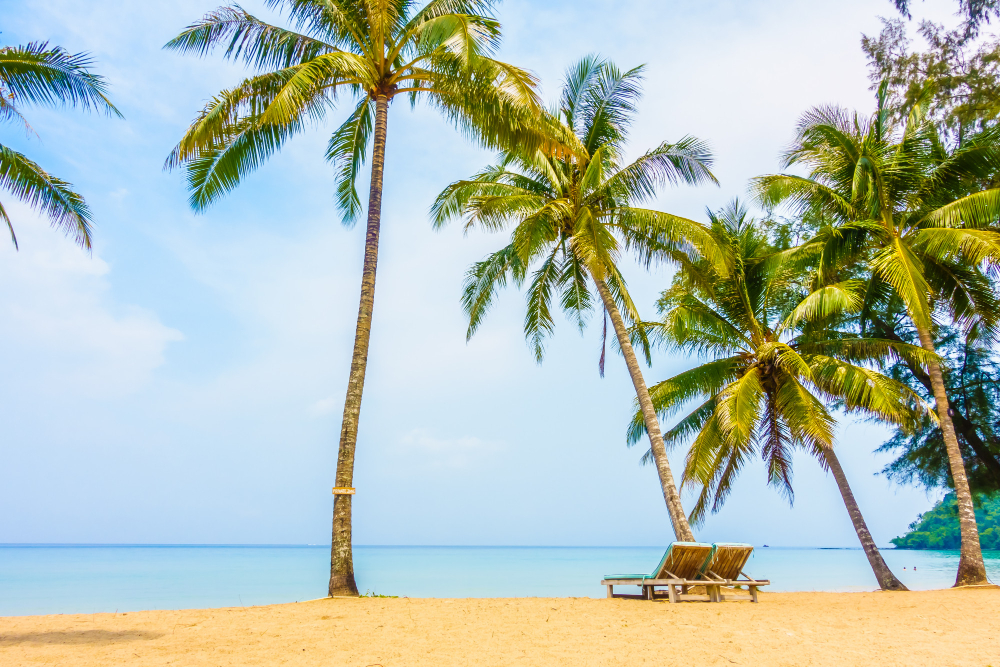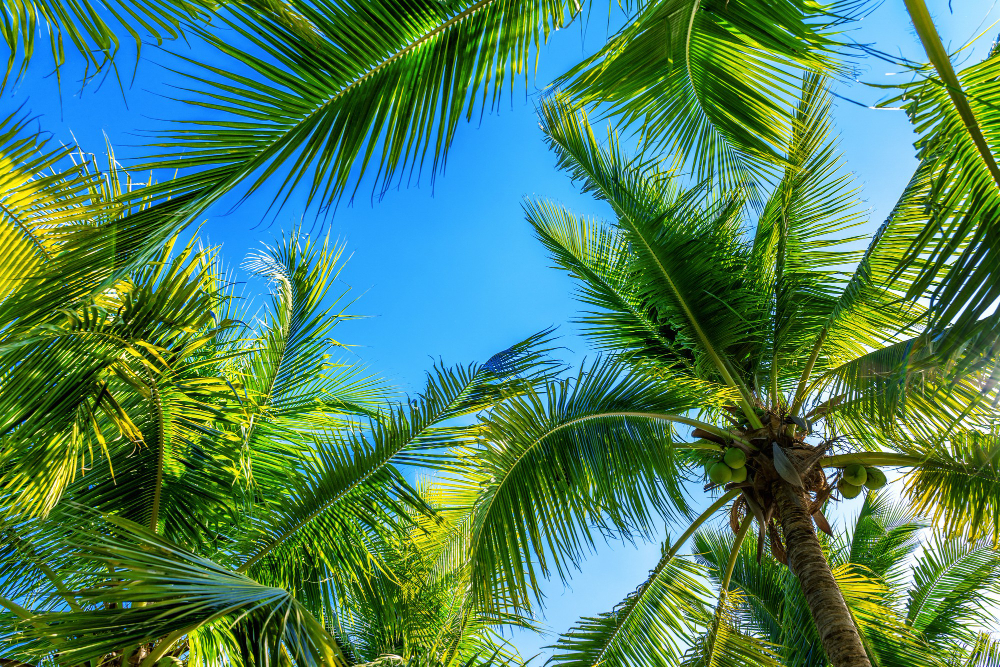Atulya Vanam's Mighty Sacred Coconut Tree: A Holistic Guide to its Healing Legacy
The Coconut tree (Cocos nucifera) stands as an emblem of life and sustenance, offering a diverse array of therapeutic benefits through its leaves, fruit, bark, roots, and flowers.
In this comprehensive blog, we embark on an illuminating journey to explore the versatile uses of the Coconut tree across various medical systems, including Modern Medicine, Ayurveda, Unani, Homeopathy, Siddha, and its multifaceted applications. Additionally, we delve into the captivating varieties of coconuts available in India.
Medicinal Value
Modern Medicine:
Coconut Water: Known for its electrolyte content, coconut water serves as a natural rehydrating and revitalizing beverage.
Coconut Oil: Coconut oil is celebrated for its medium-chain fatty acids, contributing to heart health and supporting brain function.
Ayurveda:
Coconut Oil: Ayurveda values coconut oil for its cooling properties and its use in massages, enhancing skin health and relaxation.
Coconut Milk: Coconut milk finds its place in Ayurvedic preparations, providing nourishment and aiding digestion.
Unani:
Coconut Kernel: Unani recognizes coconut as a source of energy, appreciated for its rich nutritional profile.
Homeopathy:
Coconut Water: Coconut water may find its role in homeopathic remedies targeting specific symptoms or health concerns.
Siddha:
Coconut Kernel: In Siddha medicine, coconut is believed to enhance immunity and vitality.
General Uses
Nutrient-Rich Superfood: Coconuts are a rich source of vitamins, minerals, and healthy fats, making them an essential dietary component.
Hydration Hero: Coconut water serves as a natural electrolyte-rich alternative to commercial sports drinks.
Skin and Haircare: Coconut oil is used for its moisturizing and healing properties in skincare and haircare routines.
Cooking Marvel: Coconut products like oil, milk, and grated coconut are staples in diverse culinary traditions.
Natural Fibers: Coconut fibers are used in making ropes, mats, and handicrafts.
Varieties of Coconuts in India
Tall Varieties: Common in coastal regions, these varieties yield both tender and mature coconuts, with popular types like West Coast Tall.
Dwarf Varieties: Compact and ideal for small spaces, they yield smaller but sweeter coconuts, including Chowghat Orange Dwarf.
Hybrid Varieties: Crossbred for better yield and resistance, hybrid varieties like Lakshadweep Ordinary are cultivated.



More about Coconut
Coconut trees (Cocos nucifera) are fascinating and versatile plants with a multitude of extraordinary qualities. Here are some intriguing facts about coconut trees:
- Tree of Life: Coconut trees are often referred to as the “Tree of Life” due to the many practical uses of their various parts.
- Global Distribution: Coconut trees are found in tropical and subtropical regions around the world, thriving in coastal areas.
- Multipurpose: Every part of the coconut tree is utilized, from the fruit and water to the leaves, husk, and wood.
- Nutritional Powerhouse: Coconut water is a natural electrolyte-rich drink, and coconut meat is a source of healthy fats, fiber, and nutrients.
- Culinary Diversity: Coconuts are used in a wide array of dishes, from savory to sweet, in cuisines from Asia to the Caribbean.
- Fiber and Matting: Coconut husk fibers are used to create mats, ropes, and brushes, offering a sustainable alternative to synthetic materials.
- Oil Extraction: Coconut oil is widely used in cooking, skincare, haircare, and even for oil pulling in some traditional practices.
- Health Benefits: Coconut products, such as oil and water, have been associated with potential health benefits, including promoting heart health and aiding digestion.
- Medicinal Uses: Different parts of the coconut tree have been used in traditional medicine for potential antimicrobial, anti-inflammatory, and other properties.
- Landscape Beauty: Coconut palms add a tropical charm to landscapes, lining coastal shores and providing shade.
- Biodiversity: There are different varieties of coconuts, including dwarf and tall varieties, each adapted to specific climates and uses.
- Sustainable Building Material: Coconut timber is used as a sustainable and renewable construction material in some regions.
- Economic Significance: The coconut industry provides livelihoods to millions of people globally, from farmers to producers of coconut-based products.
- Beverage Industry: Coconut water is increasingly popular as a natural and hydrating beverage, enjoyed for its refreshing taste and potential health benefits.
- Traditional Crafts: Coconut shells and leaves are used in traditional crafts, creating items like bowls, jewelry, and baskets.
- Shelter and Thatch: Coconut leaves are used to create thatch roofs and walls for traditional shelter in many tropical areas.
- Cultural Symbolism: Coconut trees hold cultural significance in many societies, often symbolizing abundance, hospitality, and resilience.
- Ecological Importance: Coconut trees play a role in coastal protection, sand stabilization, and providing habitat for various wildlife.
These extraordinary facts highlight the significance of coconut trees in various aspects of human life, from nutrition and culture to livelihoods and environmental conservation. Their versatility and usefulness continue to make coconut trees a cherished and essential resource in tropical regions worldwide.
Conclusion
The Coconut tree, a symbol of sustenance and rejuvenation, transcends its role as a bearer of fruit. Its leaves, fruit, bark, roots, flowers, and multifaceted applications interweave with a rich spectrum of medical systems and cultural practices. From Ayurveda’s ancient wisdom to modern medical validation, the Coconut tree’s virtues flourish. By embracing the harmony of traditional insight and contemporary exploration, we unveil the countless ways in which the Coconut tree enriches our lives—nurturing not only our bodies but also our cultural heritage and the flourishing vitality of our environment.
